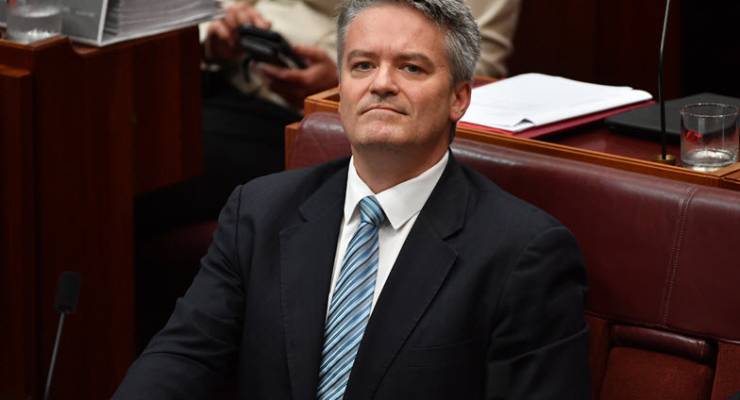
Don’t look now, but the Turnbull government is on the verge of achieving a good policy outcome on both childcare funding and middle class welfare. It’s not quite as good as it could have been, but the Coalition, and especially Finance Minister Mathias Cormann, deserves credit for persistence.
The omnibus bill approach to the lingering Abbott-era welfare savings measures — linking them to childcare funding reforms — was always a risky tactic, and was dead the moment that Scott Morrison, inexplicably, tried to link NDIS funding to the bill as well. After cleaning up Morrison’s mess, the government had no option but to disassemble the bus and start again. The result, it seems likely, is that there’ll be a still-further diminished version of the Abbott government’s sensible cuts to Family Tax Benefit payments, but enough to pay for the childcare package.
Both are good policy. The government’s childcare payments reforms are progressive and will encourage workforce participation, while there’s a safety net for parents (almost entirely mothers) who don’t meet the threshold work requirements. The benefits to participation won’t be enormous — the Productivity Commission, on whose recommendations the childcare changes are based, said “the changes in workforce participation would be relatively small in aggregate” and could be as small as 16,400 women — but the changes will benefit children and direct more help to low and middle-income families. That aspect has been helped by the government agreeing to cut the threshold at which childcare assistance tapers off from $350,000 a year to $250,000, at the behest of Derryn Hinch and David Leyonhjelm.
Sadly, the once bold and laudable — if profoundly hypocritical — cuts to Family Tax Benefits from the 2014 budget have been further pared back — indexation of payments will merely be paused for two years. Hopefully, the pause can be extended in 2019. There is still considerable scope to cut middle class welfare through a proper attack on the over-generous Family Tax Benefit system, but Labor’s perhaps understandable desire to repay the kind of vindictive opposition they experienced while in government will, it seems, have to fade before that attack can be mounted.
Finance minister and deputy senate leader Mathias Cormann has been front and centre in pushing the outcome through the Senate and selling it publicly. The contrast with Scott Morrison’s cack-handed NDIS intervention is stark. The sooner George Brandis is dispatched and Cormann takes over as government leader in the Senate, the sooner, perhaps, the government can start putting together a string of legislative wins like this.








Good policy? Resulting in the lowest income families losing their additional ‘indexed for inflation’ money for FTB for the next two years? Newstart and Parenting Payment applicants having to wait one week before the commencement of their benefit?
Not good policy to me. Just more of the Coalition’s mean and nasty attacks on the most vulnerable in our society.
I am not entirely sure but I thought that Turnbull said that he would put a freeze on the cost of child care, which I took to have the roundabout effect of freezing childcare worker wages.